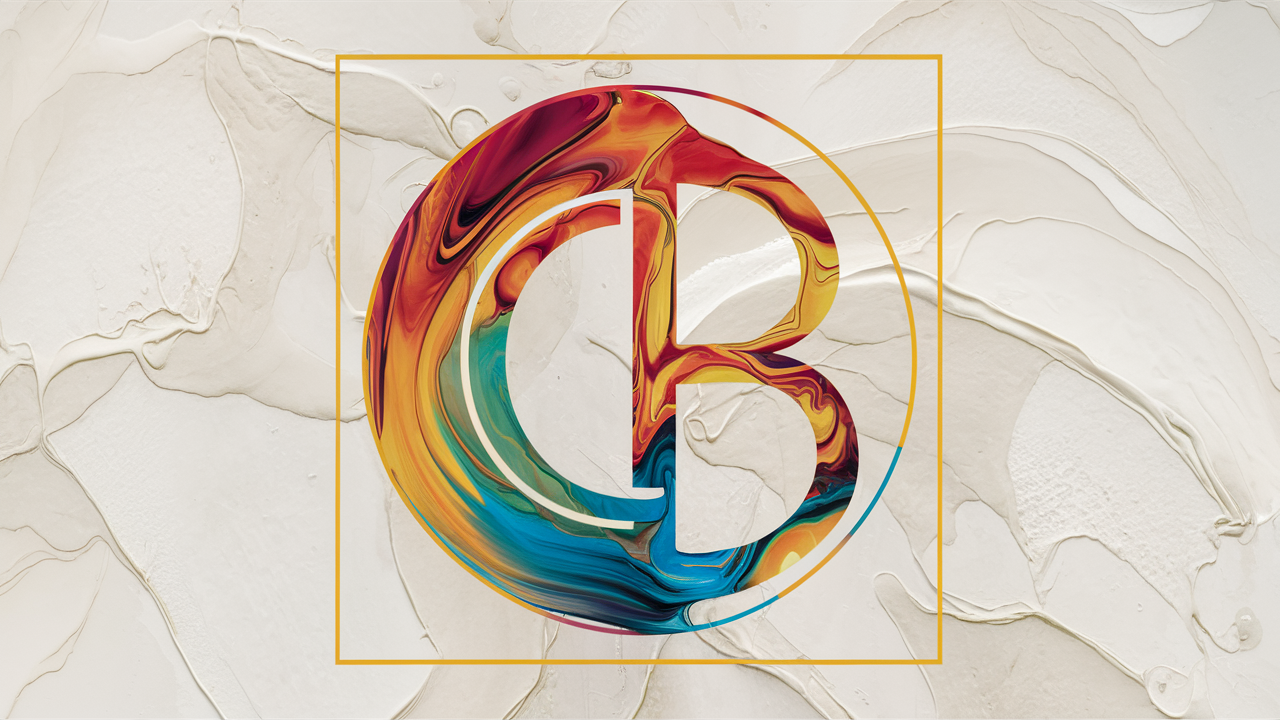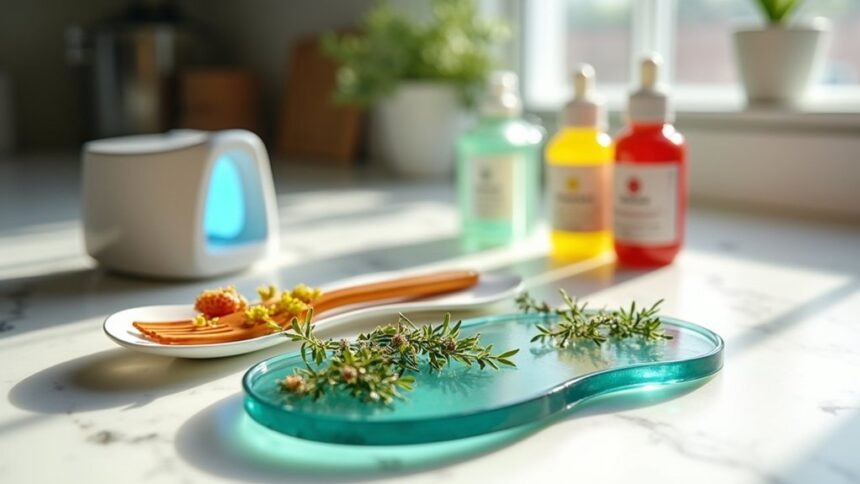Most UV resin is NOT food safe, despite what crafters might hope! The chemicals can leach into food, especially with heat or acidic ingredients. For kitchen-safe crafts, look specifically for FDA-approved, food-safe resins like certain epoxy brands (not UV resins). Always check product labels and safety data sheets before creating. Proper curing is essential – some projects need 24-72 hours to become truly safe. Your beautiful creations deserve the right materials for worry-free use!
Key Takeaways
- UV resin is generally not food safe and lacks essential food contact certifications.
- Look for materials specifically labeled “food safe” or FDA compliant for kitchen projects.
- Improper curing allows chemicals to leach into food, especially with heat or acidic foods.
- Food-safe epoxy resin is a better alternative for items that will contact food directly.
- Apply a food-safe sealant over cured resin items for additional protection in kitchen crafts.
Understanding Food Safety Requirements for Resin Crafts
When crafting items that’ll touch your snacks, you need materials explicitly labeled as “food safe.” Cured resin might look solid and harmless, but chemical leaching is a real concern, especially with UV resin. Yikes! Safety testing is super important because high temperatures from hot coffee or acidic foods like lemon can break down regular resin. For instance, cured ArtResin is suitable for incidental food contact and complies with FDA regulations, but UV resin often isn’t. Think about it – do you want mystery chemicals in your morning cereal? No way! Always double-check those labels before putting resin near food.
Certification Standards and Regulations for Food-Contact Resins
When it comes to keeping your crafts truly food-safe, certification standards are your best friends!
UV resin products typically lack the essential certifications needed for food contact applications. Health authorities have established strict regulations that food-safe resins must meet, and unfortunately, most UV resins don’t make the cut.
Unlike specially formulated epoxy alternatives, UV resins rarely come with safety data sheets showing food safety compliance. This makes it super tricky for consumers to know if they’re safe for kitchen-ready crafts. Yikes!
Before using any resin near food, check for specific food-safe certification labels. These little badges of honor mean the product has passed rigorous testing and won’t leak harmful chemicals into your snacks. Your tummy will thank you later!
Proper Curing Techniques to Ensure Kitchen Safety
Certification knowledge is just the first step in your UV resin journey!
When working with food-safe UV resin, proper curing techniques make all the difference between safe and dangerous kitchen crafts. Always expose your resin to a quality UV light source for 2-5 minutes, ensuring every inch gets zapped!
Watch out for thick layers—they’re sneaky troublemakers! Thinner applications cure more completely, reducing the risk of harmful substances leaching into food.
After curing, don’t skip the vital post-curing cleaning to remove any lingering residue from the resin surface.
Testing Your UV Resin Projects for Food Compatibility
Despite what some crafting bloggers might suggest, testing your UV resin projects for food safety isn’t as simple as a quick sniff test! The truth is, UV resin requires serious safety precautions when it comes to food contact. It is crucial to understand that almost no UV resin is actually food-safe, as the chemical reaction that occurs during curing can release substances unsuitable for your dinner plate. While your gorgeous, sparkly coasters might look amazing on your kitchen table, keep them as decorative items only.
| Test Type | What It Shows | Reliability |
|---|---|---|
| Product Label Check | FDA approval status | High |
| Safety Data Sheets | Chemical composition | Very High |
| Water Test | Surface sealing | Low |
To avoid potential chemical leaching, stick with specially formulated epoxy resins that explicitly state “food-safe” on their product label if you’re making items that will touch food.
Alternatives and Safe Practices for Kitchen-Ready Creations
Crafters looking for food-safe options should completely avoid UV resin for any project that might touch edibles! The lack of FDA approval makes UV resin a definite no-go for anything that comes in contact with your tasty treats. Instead, savvy crafters can turn to specially formulated food-safe epoxy resin for kitchen-ready creations. Before purchasing, always perform safety checks by reading product labels and SDS sheets, making sure they’re free from harmful chemicals and VOCs. Whoa, those nasty chemicals are not something you want near your morning cereal! For extra protection, apply a food-safe sealant over completely cured resin items. This creates a barrier that helps keep your crafting items safer for food contact. Curing time ranges from 24 to 72 hours, which is essential for ensuring the resin is fully set and non-toxic before use in kitchen-related crafts.
Frequently Asked Questions
Is UV Resin Food Grade Safe?
Standard UV resin lacks food grade safety certifications. Unlike specialized resin types, it may leach toxic substances after curing, presenting health risks for food contact applications despite user experiences claiming otherwise.
Are Resin Crafts Food Safe?
Most resin crafts aren’t food safe. Different resin types require proper curing process and safety certifications for kitchenware applications. Food-grade epoxies exist, while UV resins remain suitable only for decorative items.
What Are the Safety Precautions for UV Resin?
UV resin handling requires gloves, ventilation, and eye protection. Proper storage minimizes toxicity risks. During curing, reduce exposure with sunscreen. Post-project cleanup and disposal prevent environmental contamination.
Is Epoxy Resin Food Safe in the UK?
Standard epoxy resin isn’t food safe in the UK. Only specific resin types certified for food contact should be used in kitchen applications. Safety regulations require complete curing process to minimize toxicity levels and potential health impacts.
Conclusion
While standard UV resin isn’t food safe, specially certified food-grade resins can safely touch your snacks when properly cured. Always check for FDA approval, follow curing instructions exactly, and test finished pieces before using them with food. When in doubt, stick to alternatives like food-grade silicone or ceramics. With the right materials and techniques, your creative kitchen crafts can be both beautiful and totally safe to use!


Leave a Reply